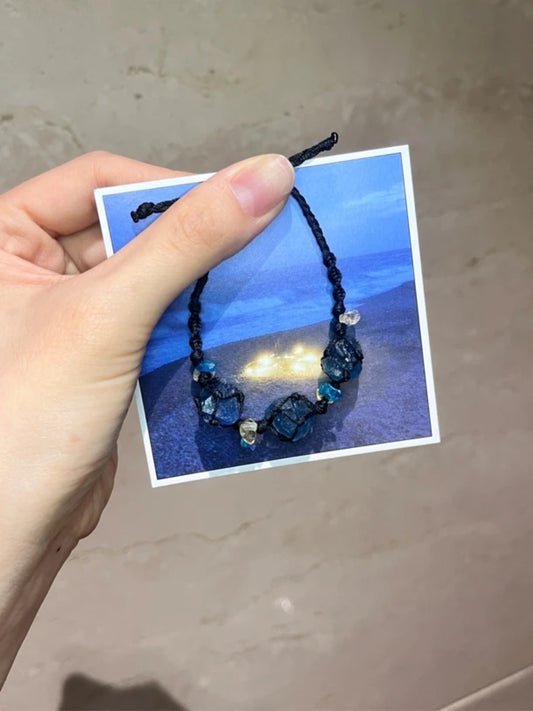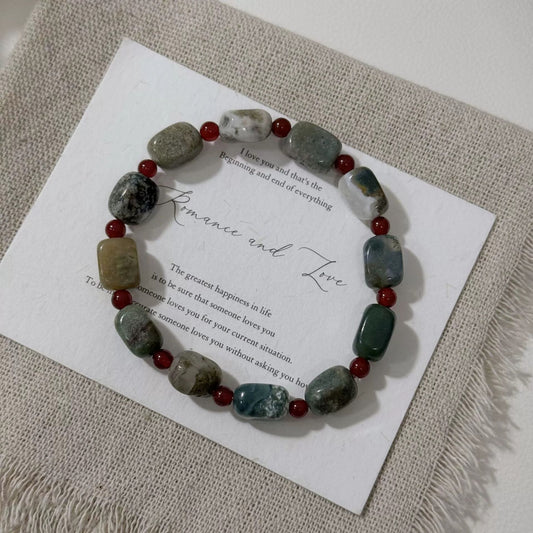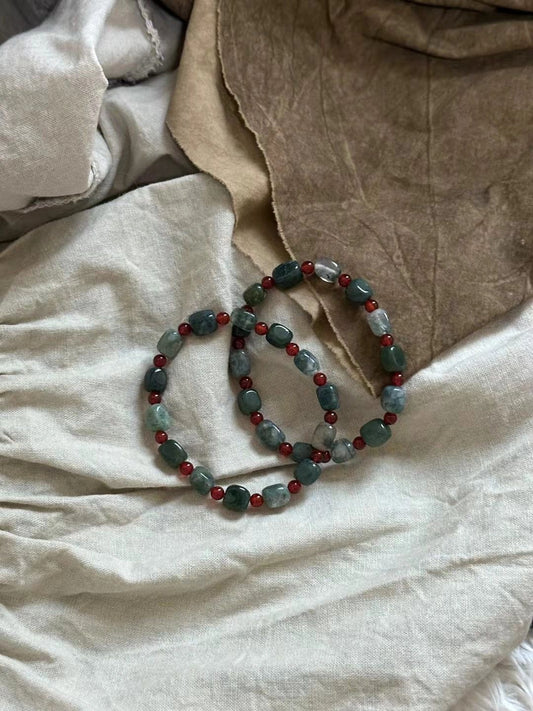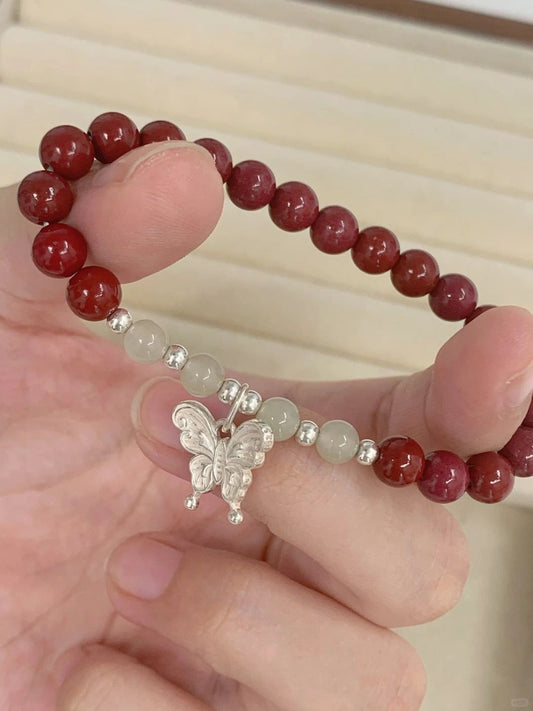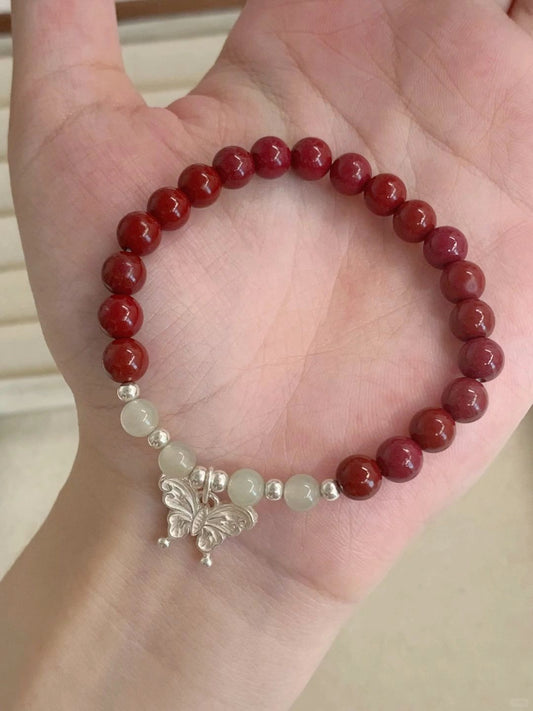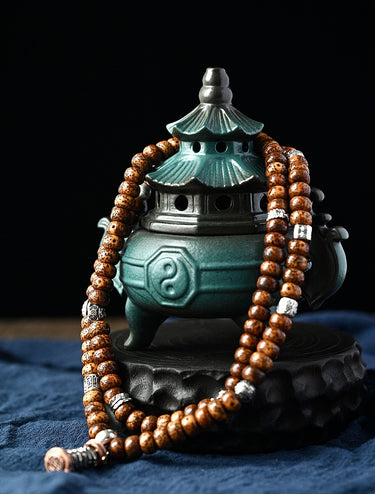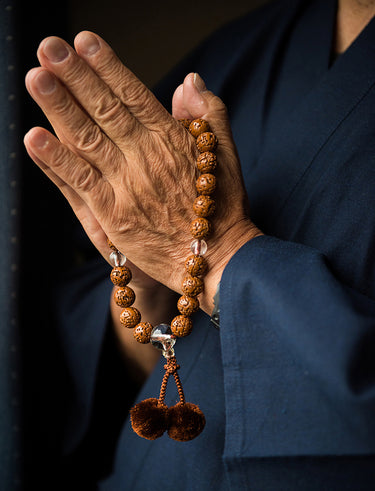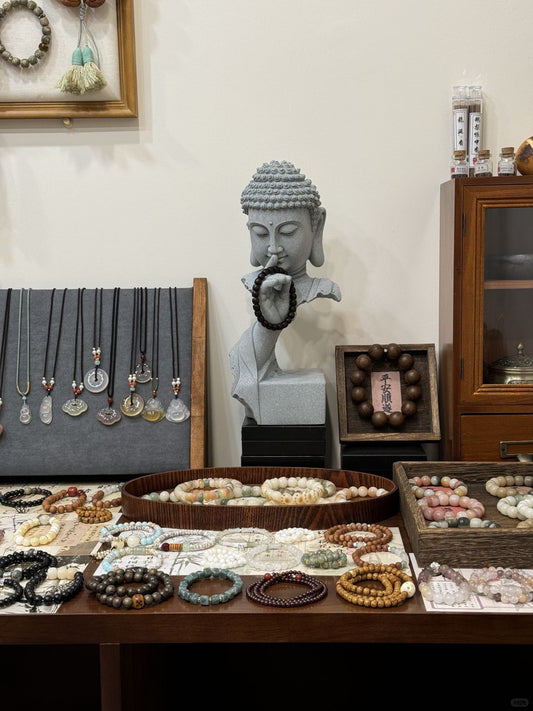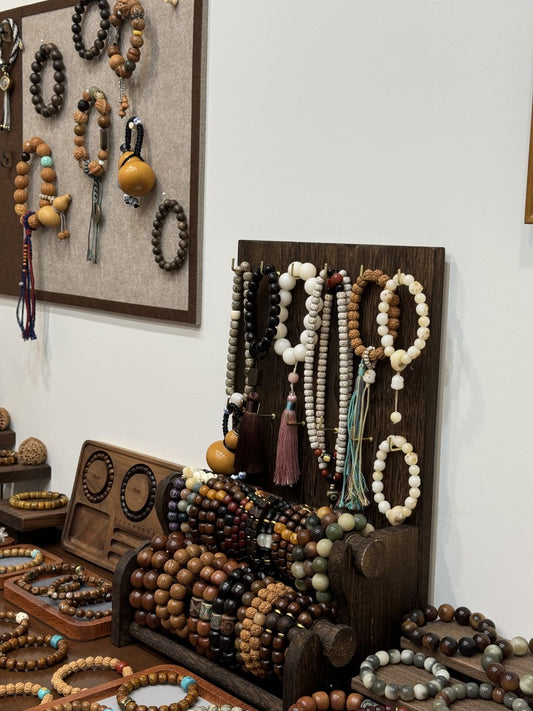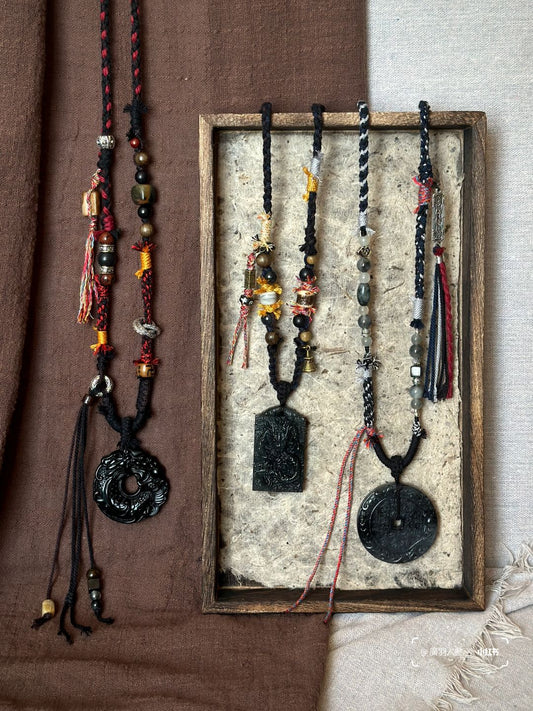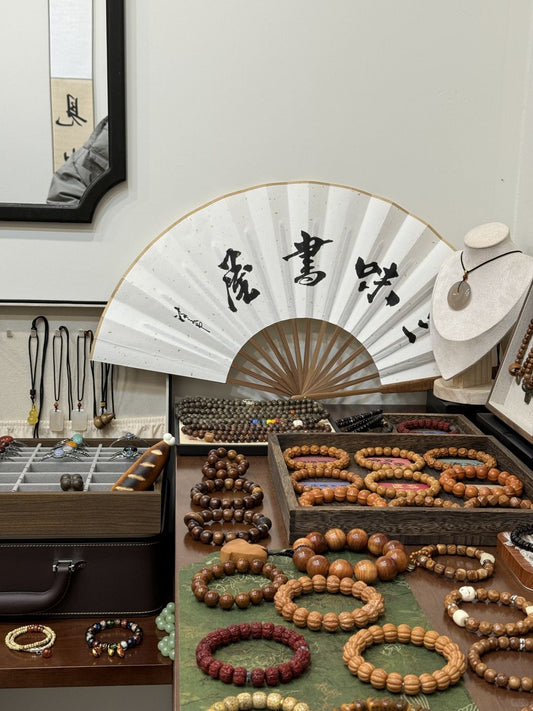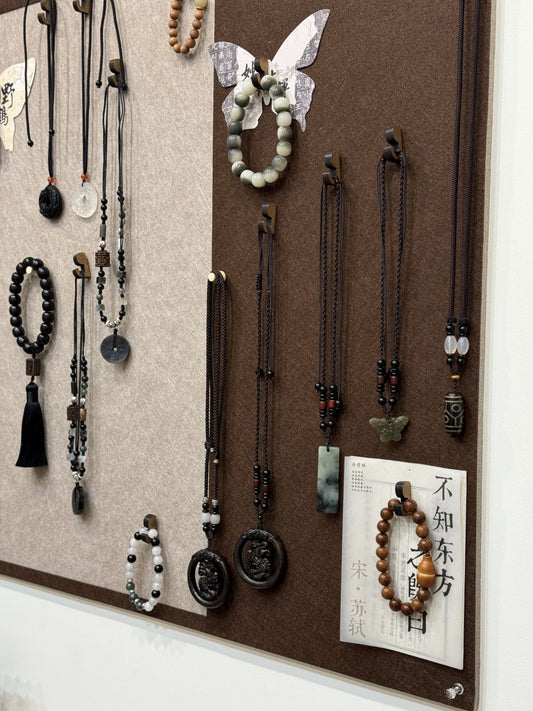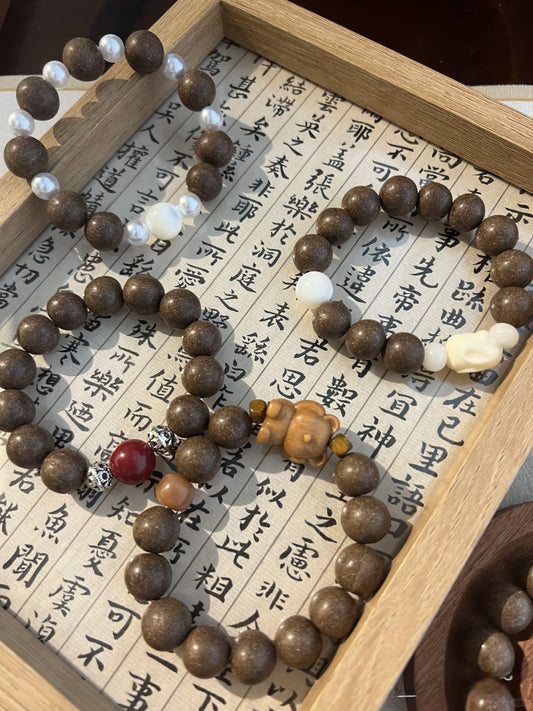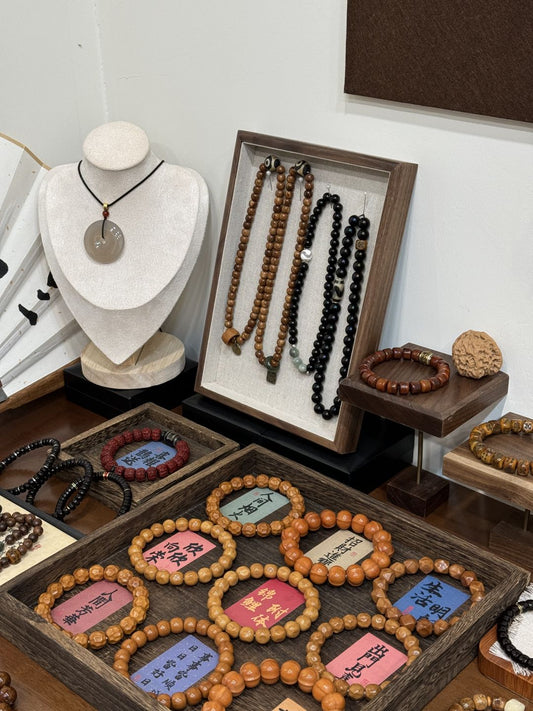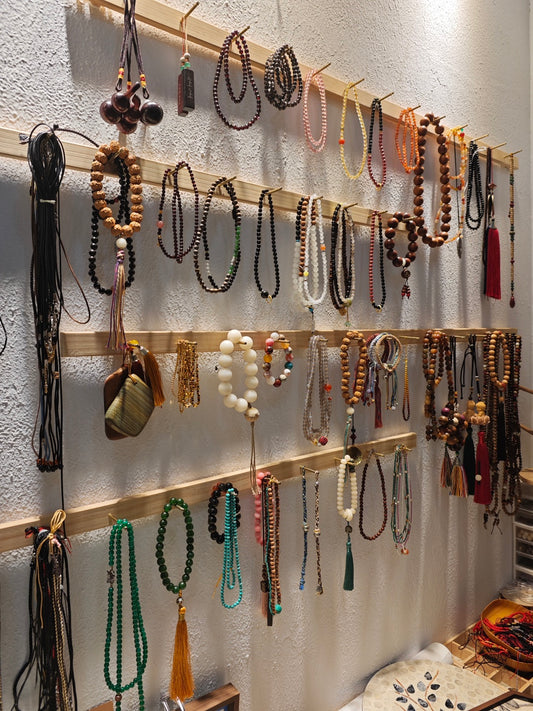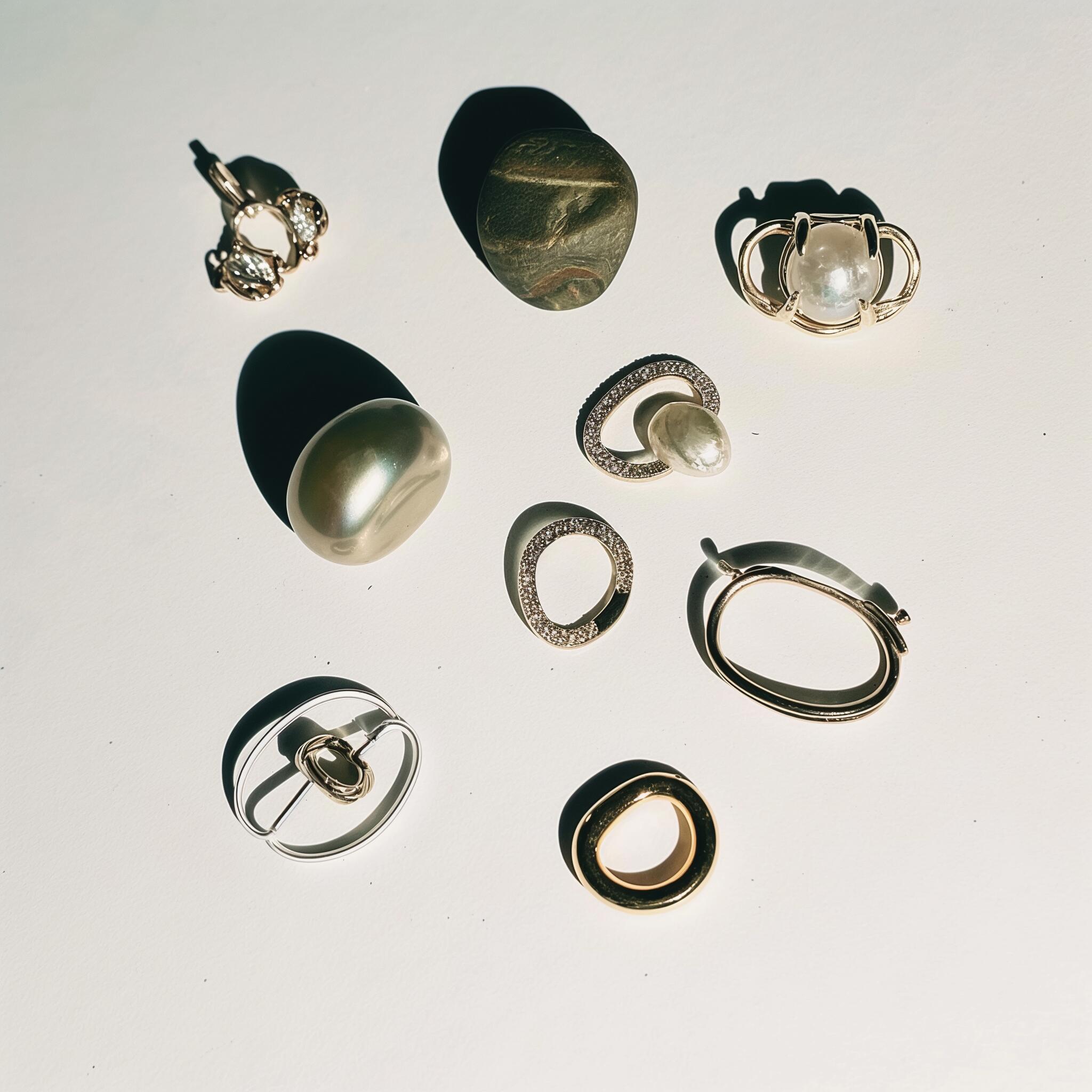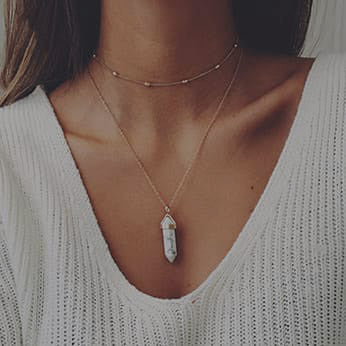Guardian Buddha for Career Change: Which Protector to Call When You Shift Direction
Tibetan imagery — Thangka paintings, mantras like Om Mani Padme Hum, and deity icons — holds deep spiritual meaning for many people. As these symbols appear more widely in fashion and accessories, it’s important to distinguish cultural appreciation from cultural appropriation. Wearing a Thangka pendant or mantra ring can be a sincere expression of devotion or a mindful reminder in daily life, but it can also unintentionally trivialize sacred traditions when handled casually.
Below are clear, practical guidelines for wearing Tibetan symbols respectfully, plus tips for buying, caring for, and sharing these objects in ways that support communities and honor their context.

Understand before you wear
The first step toward ethical Tibetan jewelry is education.
-
Learn the basics: before wearing a Thangka image, learn who the depicted figure is (Buddha, Tara, Medicine Buddha, a protector like Mahakala), what they represent, and why they matter in practice.
-
Ask about intent: consider whether you’re drawn to the symbol for its spiritual meaning (compassion, protection, healing) or only for aesthetics. Intent shapes how the object is treated.
-
Check context: some images are tied to specific rituals or empowerments that require a teacher’s guidance; recognize that not all sacred forms are meant for casual display.

Source ethically — support makers and communities
Where an item comes from matters as much as what it looks like.
-
Buy from reputable artisans or fair-trade dealers who work directly with Tibetan or Himalayan craftspeople. Ask about the maker, the method, and whether profits return to the community.
-
Favor transparent sellers who disclose materials and any consecration history. If a piece has been blessed by a lama or used in ritual, that context should be communicated respectfully.
Supporting authentic craft keeps living skills—Thangka painting, silverwork, hand-casting—alive and helps communities that maintain these traditions.

Wear with intention and basic etiquette
Small acts make a big difference in how a sacred symbol is perceived.
-
Set an intention: when putting on a pendant or ring, take a moment to reflect on why you wear it — compassion, protection, or a reminder to practice kindness. This turns ornament into a tool for cultivation.
-
Consider placement: avoid wearing sacred images in places where they might be disrespected (bathrooms, nightclubs, gym saunas). A pendant close to the heart or a ring worn with reverence is different from a novelty item worn for shock value.
-
Be mindful in public settings: if you travel to a monastery, shrine, or cultural festival, remove or cover pieces if a local guide requests it.
These small courtesies show that the symbol is meaningful, not merely fashionable.

Avoid trivialization and stereotyping
Not every image is neutral decoration.
-
Don’t use sacred motifs as costume or party wear. Masked cham imagery, wrathful deities, or ritual implements (like phurba or vajra) have specific ritual contexts — they are not Halloween props.
-
Avoid blending sacred Tibetan symbols with unrelated logos, slogans, or marketing that undercuts their spiritual weight.
-
Resist reductive use: a single deity’s iconography often encodes complex teachings—reduce it too far and the symbol loses integrity.
Care, storage, and handling
Treat Tibetan images as you would any meaningful devotional object.
-
Store Thangka pendants and gawu boxes in a clean, dry place; keep metal amulets polished gently and away from harsh chemicals.
-
If a piece is consecrated or carries mantras, consider keeping it on an altar when not worn and avoid harsh or disrespectful treatment.
-
Ask a teacher or experienced practitioner about appropriate cleaning and care for ritual objects.

Gifting and sharing respectfully
Giving Tibetan-symbol jewelry can be meaningful if done thoughtfully.
-
Explain the symbol: include a short note about its meaning and appropriate ways to wear and care for it.
-
Avoid gifting sacred images as casual souvenirs to people who do not understand the context. Gifts carry responsibility—make sure the recipient will respect the object.
-
Support ethical makers: when possible, choose gifts from artisans who receive fair pay.
When in doubt, ask and learn
If uncertain about a particular symbol or practice, reach out to a local Buddhist center, scholar, or ethical seller. Most communities welcome sincere questions and appreciate people who make an effort to learn.
Final thought
Wearing Tibetan symbols can be a beautiful expression of respect, devotion, or personal inspiration — provided it’s done with knowledge, intention, and care. Ethical Tibetan jewelry is more than a trend: it’s an invitation to slow down, learn, and connect to a living cultural practice. When sourcing thoughtfully, wearing respectfully, and supporting authentic artisans, your choice can honor both the symbol and the people who keep its traditions alive.








































































































